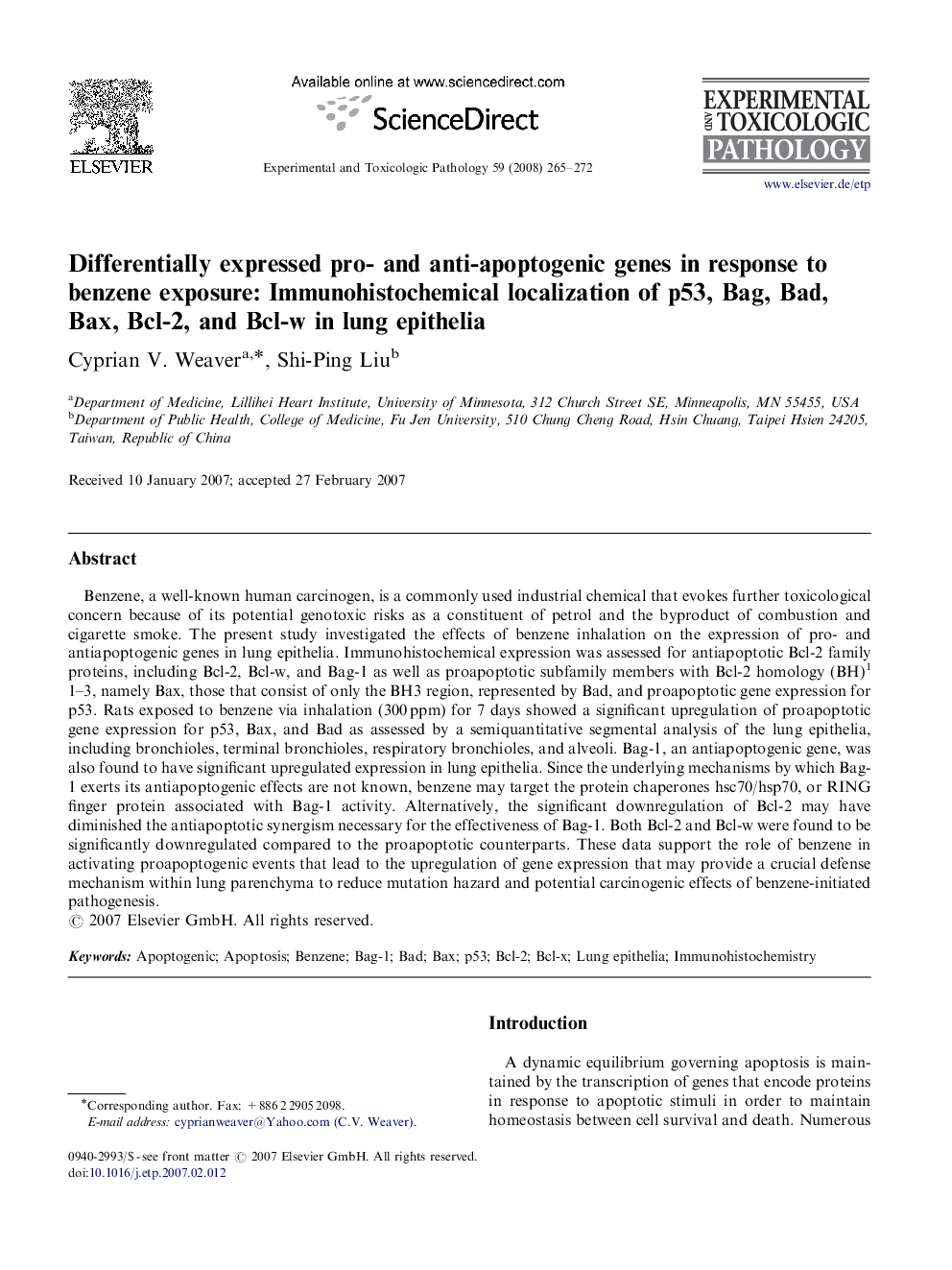| کد مقاله | کد نشریه | سال انتشار | مقاله انگلیسی | نسخه تمام متن |
|---|---|---|---|---|
| 2499347 | 1116504 | 2008 | 8 صفحه PDF | دانلود رایگان |

Benzene, a well-known human carcinogen, is a commonly used industrial chemical that evokes further toxicological concern because of its potential genotoxic risks as a constituent of petrol and the byproduct of combustion and cigarette smoke. The present study investigated the effects of benzene inhalation on the expression of pro- and antiapoptogenic genes in lung epithelia. Immunohistochemical expression was assessed for antiapoptotic Bcl-2 family proteins, including Bcl-2, Bcl-w, and Bag-1 as well as proapoptotic subfamily members with Bcl-2 homology (BH)1 1–3, namely Bax, those that consist of only the BH3 region, represented by Bad, and proapoptotic gene expression for p53. Rats exposed to benzene via inhalation (300 ppm) for 7 days showed a significant upregulation of proapoptotic gene expression for p53, Bax, and Bad as assessed by a semiquantitative segmental analysis of the lung epithelia, including bronchioles, terminal bronchioles, respiratory bronchioles, and alveoli. Bag-1, an antiapoptogenic gene, was also found to have significant upregulated expression in lung epithelia. Since the underlying mechanisms by which Bag-1 exerts its antiapoptogenic effects are not known, benzene may target the protein chaperones hsc70/hsp70, or RING finger protein associated with Bag-1 activity. Alternatively, the significant downregulation of Bcl-2 may have diminished the antiapoptotic synergism necessary for the effectiveness of Bag-1. Both Bcl-2 and Bcl-w were found to be significantly downregulated compared to the proapoptotic counterparts. These data support the role of benzene in activating proapoptogenic events that lead to the upregulation of gene expression that may provide a crucial defense mechanism within lung parenchyma to reduce mutation hazard and potential carcinogenic effects of benzene-initiated pathogenesis.
Journal: Experimental and Toxicologic Pathology - Volume 59, Issue 5, 17 March 2008, Pages 265–272